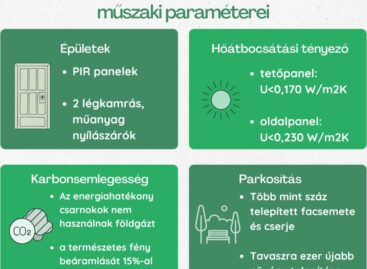Magazine: Invisible informatics
Cloud-based IT solutions are increasingly popular with Hungarian SMEs – reveals a study conducted by Microsoft in March 2016: 54 percent of them used these solutions in 2015, while back in 2014 this proportion was only 40 percent. As part of the survey, 6,200 small businesses answered questions in 20 countries.
44 percent of people employed by Hungarian SMEs are of the opinion that cloud computing technology can play an important role in making their work hours flexible. Solutions such as Google Apps for Work or Office 365 are used by 75 percent of respondents, while 55 percent of the survey’s participants work with work documents on their home computer. Half of Hungarian SMEs’ decision-makers use Dropbox, Google Cloud and OneDrive when working from their homes.
According to Gábor Vass, SMS&P lead at Microsoft, the cloud offers small businesses the same level of efficiency that only large companies used to have a few years ago. A recent survey by Deloitte found that small enterprises realise 21 percent bigger profit and grow 27 percent faster if they use cloud computing technology.
InvitechSolutions have also experienced strong growth in the market of cloud computing services. Péter Kováts, director responsible for medium-sized companies, is of the opinion that a growing number of enterprises realise: it is not cost-efficient any more to have an e-mail server working in the corner of the room. The number of cloud technology users has already increased in the case of classic office software, while with ‘business solutions as a service’ the growth is about to occur in the medium and long run. SMEs not only want an IT system from InvitechSolutions but also solutions to their business problems. It is interesting that Hungarian companies started using cloud-based solutions a bit later than their competitors in other countries – they waited to see what the international experiences were first.
Companies aren’t as worried about cloud-related security issues as they used to be at the beginning. Tamás Kovács, enterprise solution lead at Dell Hungary told our magazine that companies are more open to using cloud-based services in the field of software use. Small businesses are mostly looking for Unified Communications and Collaboration (UCC) solutions. Large companies prefer more complex solutions.
József Baumgartner, IT-security expert with Laurel informed us that not only small and medium-sized businesses turn to cloud computing technology anymore, but also micro-businesses. It was last year that his company introduced the Laurel Retail Cloud service to the Hungarian market. Those SMEs are the most open to using services in the cloud which have an owner or managing director from Generation Y. Classic cloud-based services (e-mail and storage) are already widely used by SMEs, but those with an actual office also tend to use the virtual server service.
Microsoft data indicate that 57 percent of technological device using small businesses in Hungary supported the Bring Your Own Device (BYOD) model in 2015. This is a great step forward from the 38 percent measured in 2014. It is noteworthy that in the case of micro-businesses this proportion is even higher, 67 percent. Gábor Vass reminded us that the new Microsoft Office is completely platform-independent: it can be accessed from Windows Phone, iPhone and Android devices as well.
Péter Kováts’ experience is that the BYOD model is spreading mainly with smartphones – even more so because a growing number of office software are available in a version that can be used on smartphone too. However, with laptop computers it isn’t that easy to be in line with the company policy, therefore the BYOD isn’t as widely used in this segment yet. Tamás Kovács informed our magazine that DELL is in favour of the BYOD model. In addition to this, the company offers models with top-level security solutions to employees who usually opt for these.
József Baumgartner explained that in today’s world of mobility they are strongly supporting the use of mobile devices. Laurel pays special attention to security, for instance device use is categorised and smart devices aren’t allowed to connect to the internal network (they are only allowed to be used on a separate mobile network). They have every device registered and the data on them can be locked or deleted remotely.
Related news
Related news
After a subdued year, the holiday season is strong
74% of online shoppers, around 3.1 million people, are preparing…
Read more >Battle of the regions: these are the most popular dishes according to Hungarians
Five times the national average of Mexican food is consumed…
Read more >Business-tailored halls help SMEs develop and grow
RaktárAD, a logistics developer with a Belgian-Hungarian ownership background, has…
Read more >





